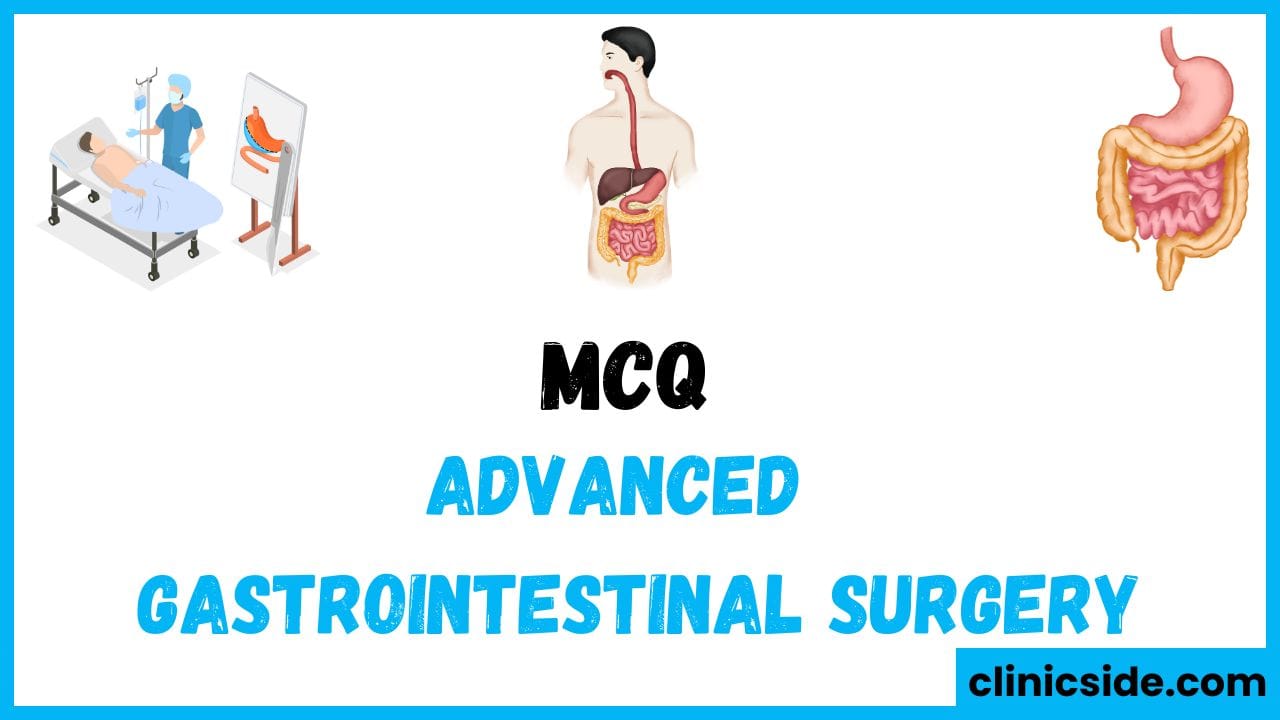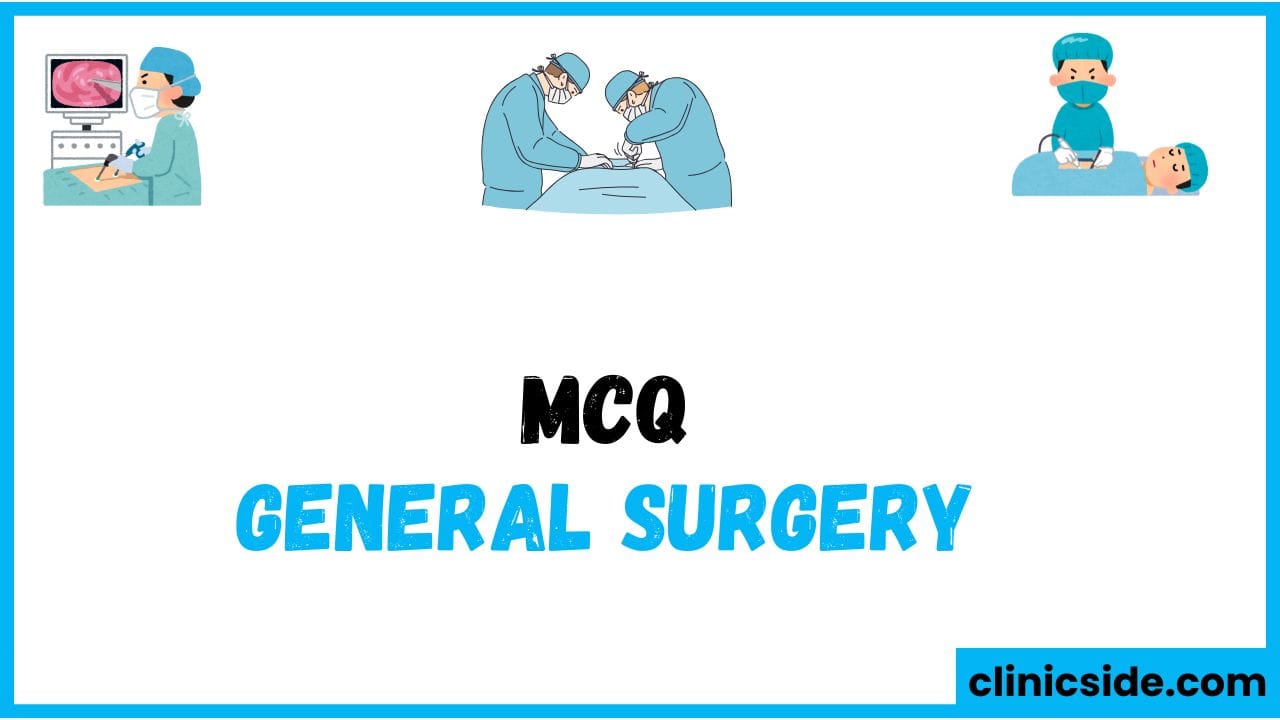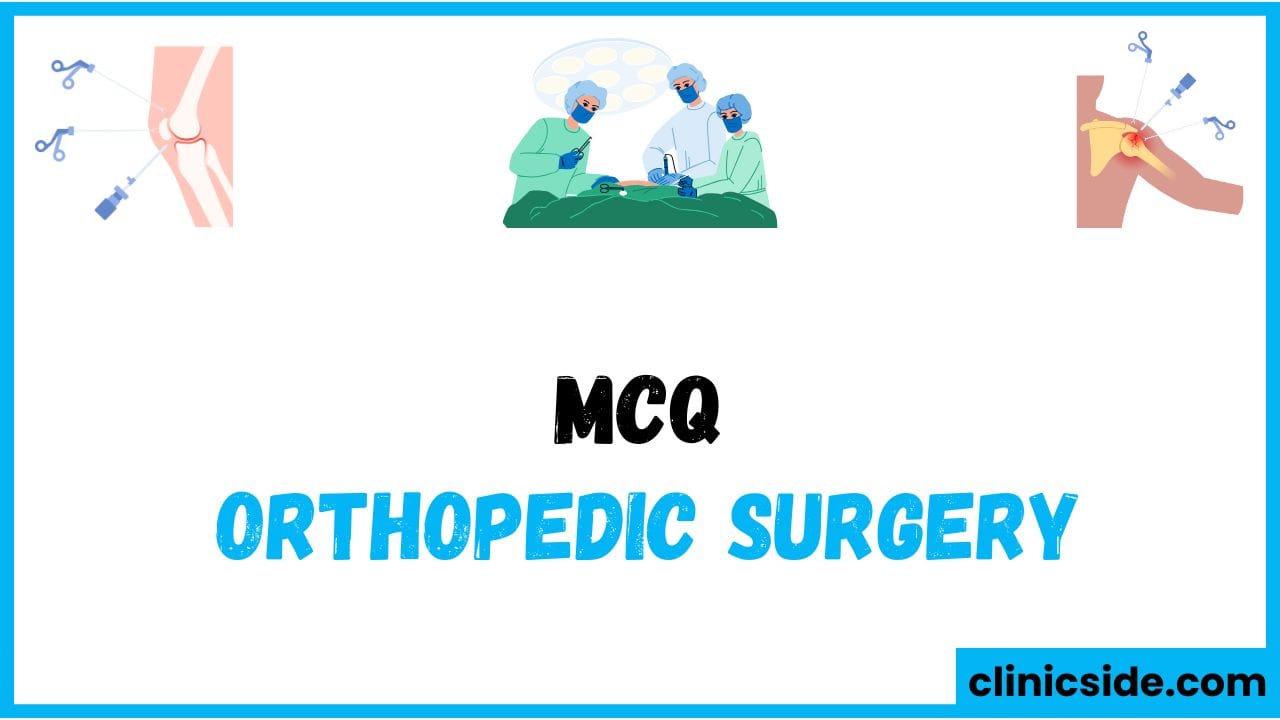Quiz
Available options: 1 to 20
Description of the MCQs
Meckel’s Diverticulum in Adults
- Common Presentation: In adults, Meckel’s diverticulum often presents with bleeding, which may result from ulceration or diverticular inflammation. It can also cause obstruction or infection in some cases.
- Surgical Treatment: Surgical resection is typically performed when complications like bleeding or obstruction occur, as the diverticulum can lead to serious complications if left untreated.
Surgical Treatment for Gastric Cancer
- Proximal Gastric Tumors: Total gastrectomy is the procedure of choice for tumors located in the upper part of the stomach. This surgery involves removing the entire stomach along with regional lymph nodes to prevent cancer spread.
- Goal: The primary goal is to completely remove cancerous tissue and improve the patient’s prognosis.
Chronic Anal Fissures and Sphincterotomy
- Procedure: For chronic anal fissures that do not respond to conservative treatments, lateral internal sphincterotomy is the standard surgical procedure. This involves cutting part of the internal anal sphincter to reduce pressure, ease pain, and promote healing.
- Outcome: This procedure significantly reduces the recurrence of fissures and improves the patient’s quality of life.
Bariatric Surgery: Roux-en-Y Gastric Bypass
- Gold Standard: The Roux-en-Y gastric bypass is the most commonly performed bariatric surgery for significant weight loss. It entails forming a small pouch from the stomach and redirecting the small intestine to this new pouch
- Benefits: This procedure helps patients achieve long-term weight loss and improves obesity-related comorbidities such as diabetes, hypertension, and sleep apnea.
Gastrointestinal Stromal Tumors (GISTs)
- Most Common Site: The stomach is the most frequent location for GISTs. These tumors can cause symptoms like bleeding, obstruction, or pain.
- Treatment: Surgical resection is typically required, as GISTs are often localized but can metastasize if not treated early. Surgery may involve removing the tumor along with surrounding tissue for clear margins.
Rectal Cancer: Surgical Approaches
- Surgical Treatment: For rectal cancer, particularly when it involves the anal sphincter or regional lymph nodes, abdominoperineal resection (APR) is commonly performed. This surgery removes the rectum, anus, and surrounding tissues.
- Outcome: APR ensures complete cancer removal, especially in cases where the tumor is low in the rectum and involves lymph node spread.
Toxic Megacolon
- Treatment: Total colectomy with ileostomy is the procedure of choice for patients with toxic megacolon, a life-threatening condition often seen in severe inflammatory bowel disease (IBD).
- Purpose: The surgery removes the entire colon and creates an ileostomy (a stoma on the abdomen for waste elimination), preventing further complications like perforation or sepsis.
Cholelithiasis (Gallstones) and Cholecystectomy
- Definitive Treatment: Laparoscopic cholecystectomy is the gold standard for treating symptomatic gallstones (cholelithiasis), often triggered by pain, infection, or complications like gallbladder inflammation.
- Procedure: This minimally invasive surgery involves removing the gallbladder to prevent further issues, with patients typically experiencing quick recovery.
Colorectal Cancer Surgery
- Surgical Intervention: For localized colorectal cancer, the treatment of choice is hemicolectomy, where part of the colon (either the right or left side) is removed along with the surrounding lymph nodes.
- Purpose: The surgery aims to remove cancerous tissue while preserving bowel function, preventing metastasis, and reducing recurrence.
Achalasia: Surgical Treatment
- Procedure: Heller myotomy is the most commonly performed surgery for achalasia, a disorder where the lower esophageal sphincter fails to relax, leading to difficulty swallowing.
- Goal: The surgery involves cutting the muscle fibers of the sphincter to allow food and liquids to pass more easily into the stomach, relieving the symptoms of dysphagia and regurgitation.
Conclusion
These 10 topics represent key surgical treatments for common gastrointestinal and colorectal diseases. Whether for cancer, chronic conditions, or life-threatening emergencies, surgery plays a crucial role in managing these diseases. Understanding these procedures and their purposes is essential for providing optimal care in clinical practice.





